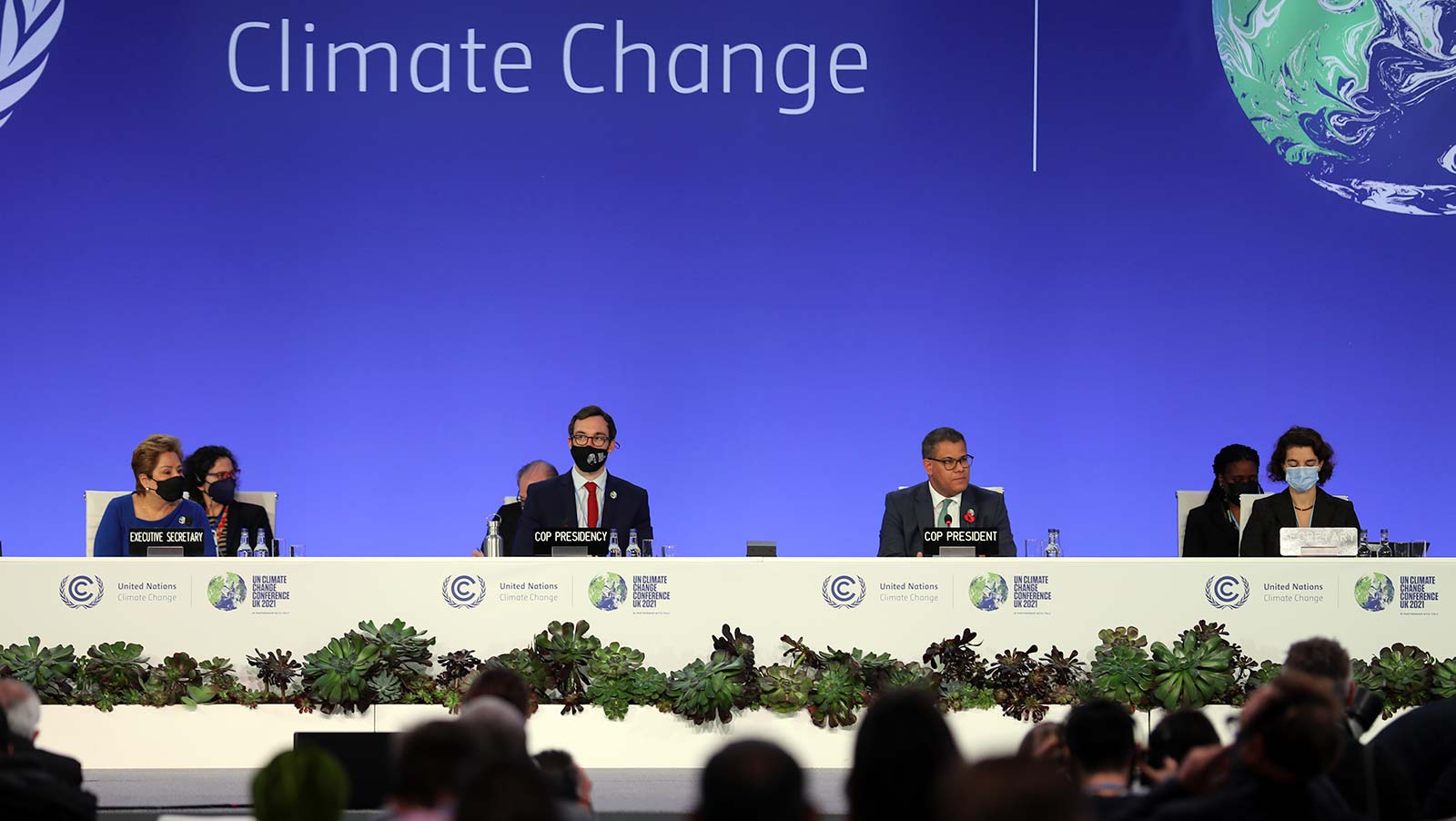With negotiators convening for talks on the last “official” day of COP26, it quickly became evident that the talks were going to run overtime, and are now set for conclusion some time on Saturday afternoon, Glasgow time.
The COP26 President, Alok Sharma, delivered a fresh batch of draft decision texts, which sees language around a coal phase-out and an end to fossil fuel subsidies watered down, but there remains an optimistic vibe that the talks might conclude with momentum still pointing towards increased global action on climate change.
Australia, however, has been signed out by environment groups for criticism for its poor climate policies, showing that Morrison’s attempt to bring Australia back into the global fold with a nominal commitment to a net zero emissions target has been exposed in Glasgow as rather hollow.
See also: Morrison chooses fossil fuels over farmers in “laughable” net zero modelling
Australia named “Colossal Fossil” of COP26
Climate Action Network International – a collection of the world’s environment groups – named Australia the “Colossal Fossil” of COP26, recognising Australia as the worst performer of all countries during the two weeks of talks.
Australia received a total of five daily ‘fossil of the day’ awards throughout the Glasgow conference, significantly more than any other country, for its lacklustre climate policies, for announcing plans to expand Australia’s oil and gas industries, and for allowing fossil fuel company Santos to use Australia’s official pavilion within the Glasgow venue to promote its business.
“We should’ve seen this as a sign of things to come but held out hope for something (apart from the coffee machine in the Australian pavilion) to cheer us up. Instead, at every turn, Scott Morrison and his band of merry fossil fools either failed to sign up to a progressive phase-out pledge or made an announcement that was better suited to an oil, gas and coal convention,” Climate Action International said in a statement.
The ultimate🏆#FossiloftheDay Awards🏆 go to…
🇦🇺Australia COLOSSAL FOSSIL for no ambition + fossil fuel expansion
🇺🇸US – 2nd for domestic coal, oil & gas
🇬🇧UK – 3rd for making #COP26 NOT "the most inclusive COP ever"ALL: Ignored #LossandDamage financehttps://t.co/SL0ybtYZPA pic.twitter.com/XxLdQjEfzD
— Climate Action Network International (CAN) (@CANIntl) November 12, 2021
Draft texts already watered down
On Friday, negotiators considered a fresh set of draft decisions proposed to be adopted by the talks. While the first draft of these texts indicated that countries might agree to a commitment to phase out coal use and remove subsidies on fossil fuels, the latest draft has seen this language watered down.
The original draft said:
“Calls upon Parties to accelerate the phasing-out of coal and subsidies for fossil fuels”
The new text:
“Calls upon Parties to accelerate the development, deployment and dissemination of technologies and the adoption of policies for the transition towards low-emission energy systems, including by rapidly scaling up clean power generation and accelerating the phase-out of unabated coal power and of inefficient subsidies for fossil fuel.”
This pushback has almost certainly come from countries like Australia and Saudi Arabia, who are resisting any suggestions that the world might phase out the use of fossil fuels altogether. The new reference to “unabated coal” leaves the door open to carbon capture and storage technologies, and the inclusion of language around technology development could be an indicator of Australian influence.
It would still represent the first time that fossil fuels have been explicitly mentioned in a formal decision text adopted by the UN climate talks, but time will tell whether or not it makes it into the final text.
New modelling of Australia’s climate policies published by the Morrison government shows that Australia’s position will be that fossil fuels will continue to have a role well after 2050.
The new texts, however, retain a call for countries to consider stronger ‘nationally determined contributions’ at the next round of climate talks, to be held in Egypt next year, placing pressure on countries like Australia, who have so far refused to announce stronger 2030 targets.
Watch: Saudi’s lead climate negotiator Ayman Shasly doubles down on KSA’s position that fossil fuel language in the COP26 cover text is not in line with the Paris Agreement. “We want to keep the Paris Agreement intact”, he told @hannahtpsky pic.twitter.com/F61sqCVxdt
— Rhiannon Williams (@_rhiannonw) November 12, 2021
COP26 goes into overtime
Despite pleas from COP president Alok Sharma for the talks to finish on time on Friday, COP26 will run into overtime, with negotiators suspending formal talks relatively early on Friday evening in Glasgow in preparation for a final push to commence on Saturday morning.
It is usual fair for the talks to run overtime, and it appears that the UK hosts accepted that fact relatively early on Friday, deciding not to attempt to resolve the talks by pushing late into Friday night. Instead, negotiators will have time to consider new negotiating texts overnight before discussing points of contention after a nights rest.
In a statement, Sharma said that he envisions the talks closing on Saturday afternoon.
The talks can’t run too much over time. An Alanis Morrissette concert originally scheduled for the same Glasgow venue as COP26 has already been postponed, and a Fatboy Slim concert is schedule for later in the week.










